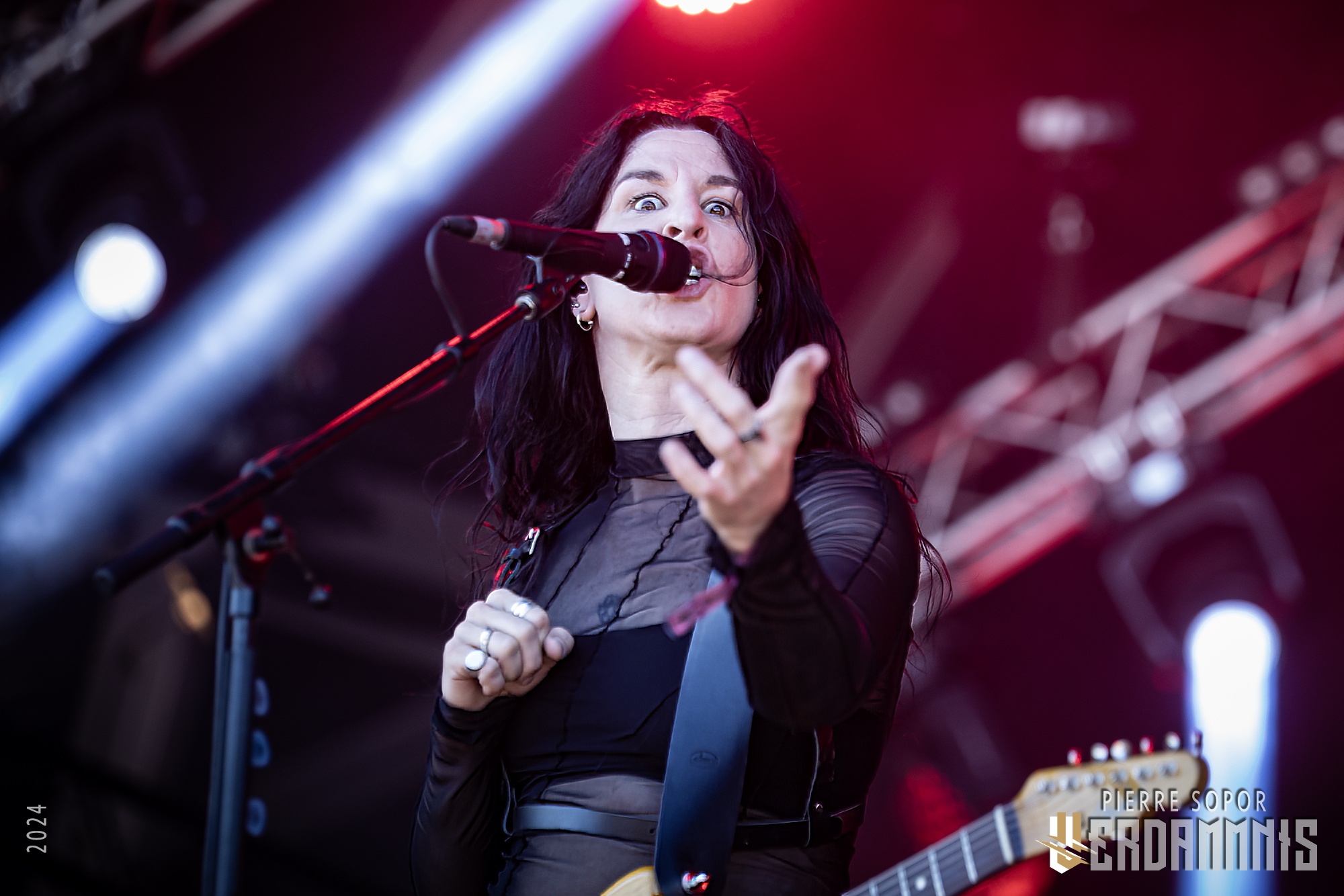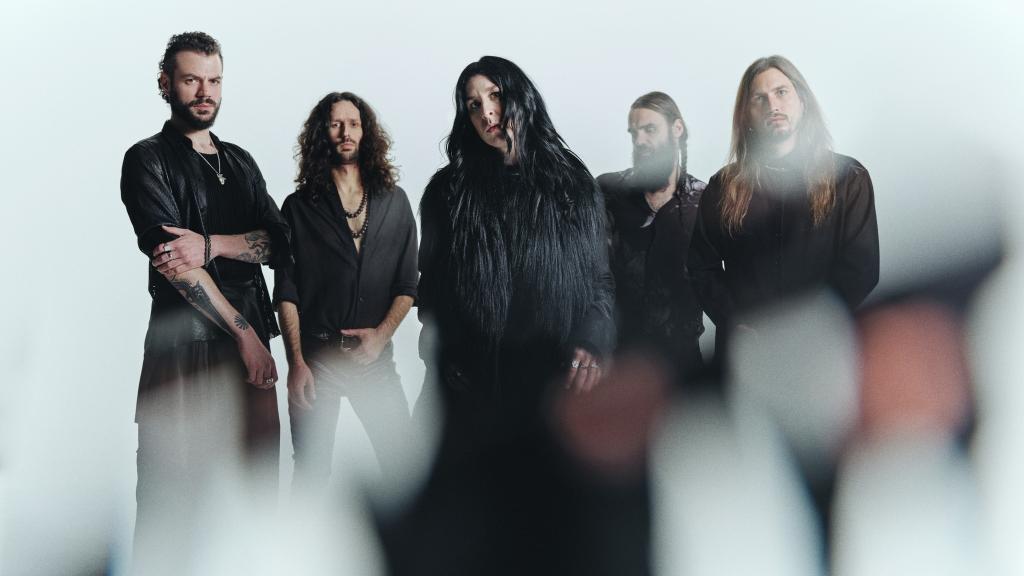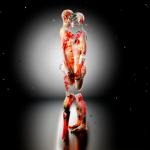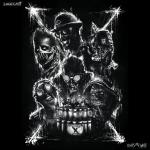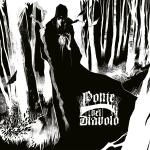DOOL exists in a liminal space, between past and future, life and death, shadow and light. Like Oweynagat's Cave, considered a passageway to the Otherworld in Irish legends and which gave its name to the band's first single, DOOL is in perpetual transition, both on the border between two states and a mixture of the two. This bittersweet relationship with change, a mixture of romantic nostalgia and the ability to embrace what the present holds, was more than ever at the heart of their latest album, The Shape of Fluidity.
The result of a more collaborative effort than in the past, it tackles themes that are personal to Raven van Dorst, the voice of DOOL. Born intersex, doctors decided to raise them as a woman. In recent years, they have decided to be Raven and embrace their plural identity: fluidity, adaptability, survival, the quest for self, change, the in-between, both at once... themes that Raven embodies particularly well and which are explicitly reflected in The Shape of Fluidity.
A few hours before taking to the stage in Paris (we told you all about the evening here), they discussed it with generosity, humour and poetry. They talk about survival, confidence and Hangman's Chair!
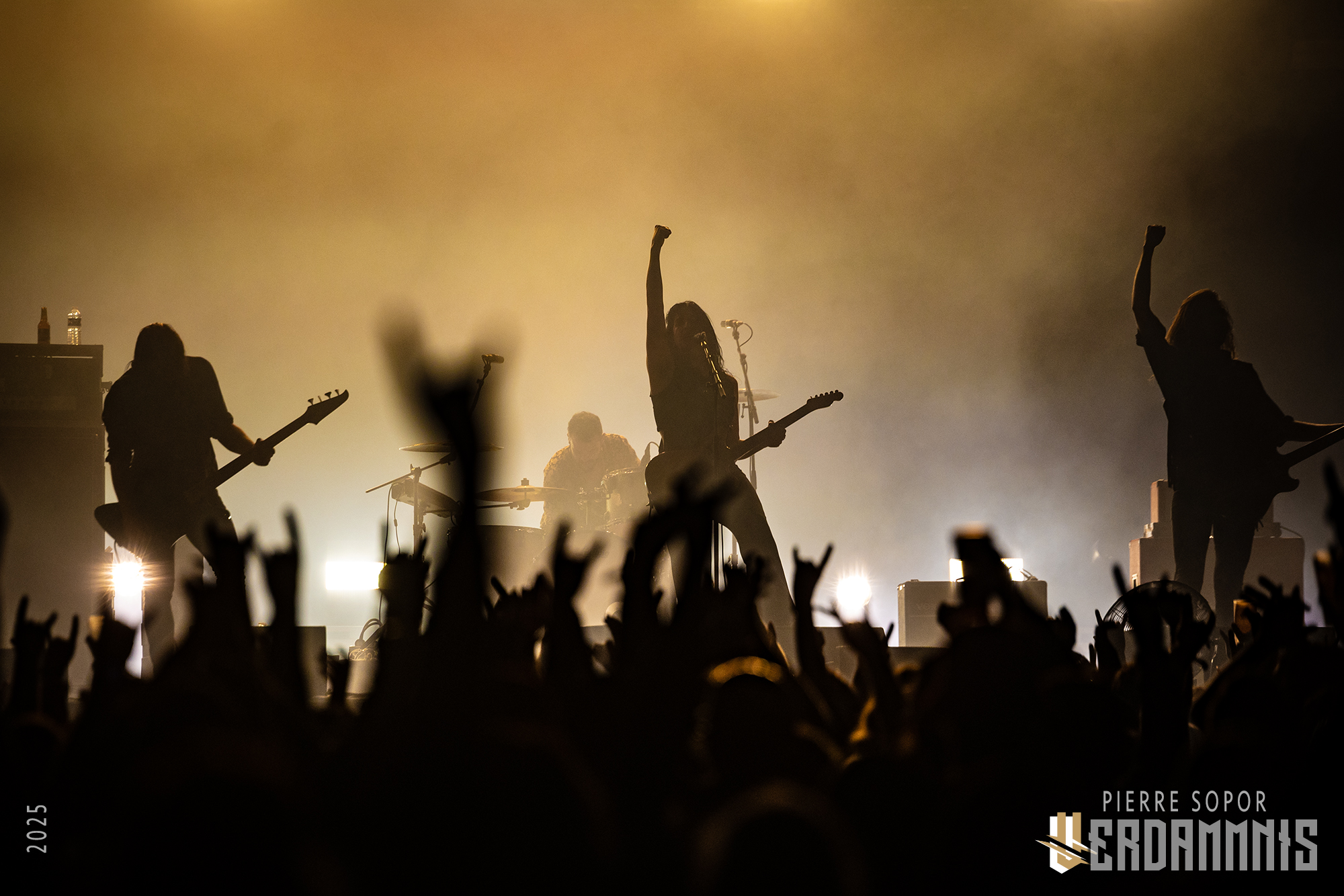
Your previous album, Summerland, was released just before the pandemic. How do you feel now when you think about it? Are you bitter or sad that you didn't really have the chance to play it live as it should have been?I
I'm not particularly bitter about that album. I'm a bit bitter about what happened to the whole music industry after that. I mean, it was already a very hard road obviously, but we never really got back to the point where artists were before. A lot of venues disappeared, a lot of bands quit, technicians quit... and the big guys, you know, the 'monsters', they took over more and more. The big ticketing agencies, the streaming thing... Somehow, they now have even more power and it feels even harder to make a living as a musician now than it was before coronavirus. For us, we were at first a bit bitter about Summerland, yes... But I think now I'm at a point where I'm disconnected from this timestamp and I can just listen to the songs as they were meant. We've got a lot of people that said it really helped them through all the lockdowns... it's also kind of comforting because it was one of the few albums that were released during this period. A lot of bands postponed their albums but we had no way of stopping it...
It's almost ironic and poetic that an album about death and the afterlife never really had the chance to live. I have this feeling that The Shape of Fluidity, in the way you talk about life, identity and being able to adapt, is more about life.
This is very much true. Here Now, There Then was more an occult, esoteric kind of album and Summerland was about afterlife and death. I think The Shape of Fluidity, even though the theme is of course water and fluidity, is more grounded. It's more about trying to survive. I think it's a way to put it : it's a survivalist album about trying to survive in a world where it's hard to navigate!
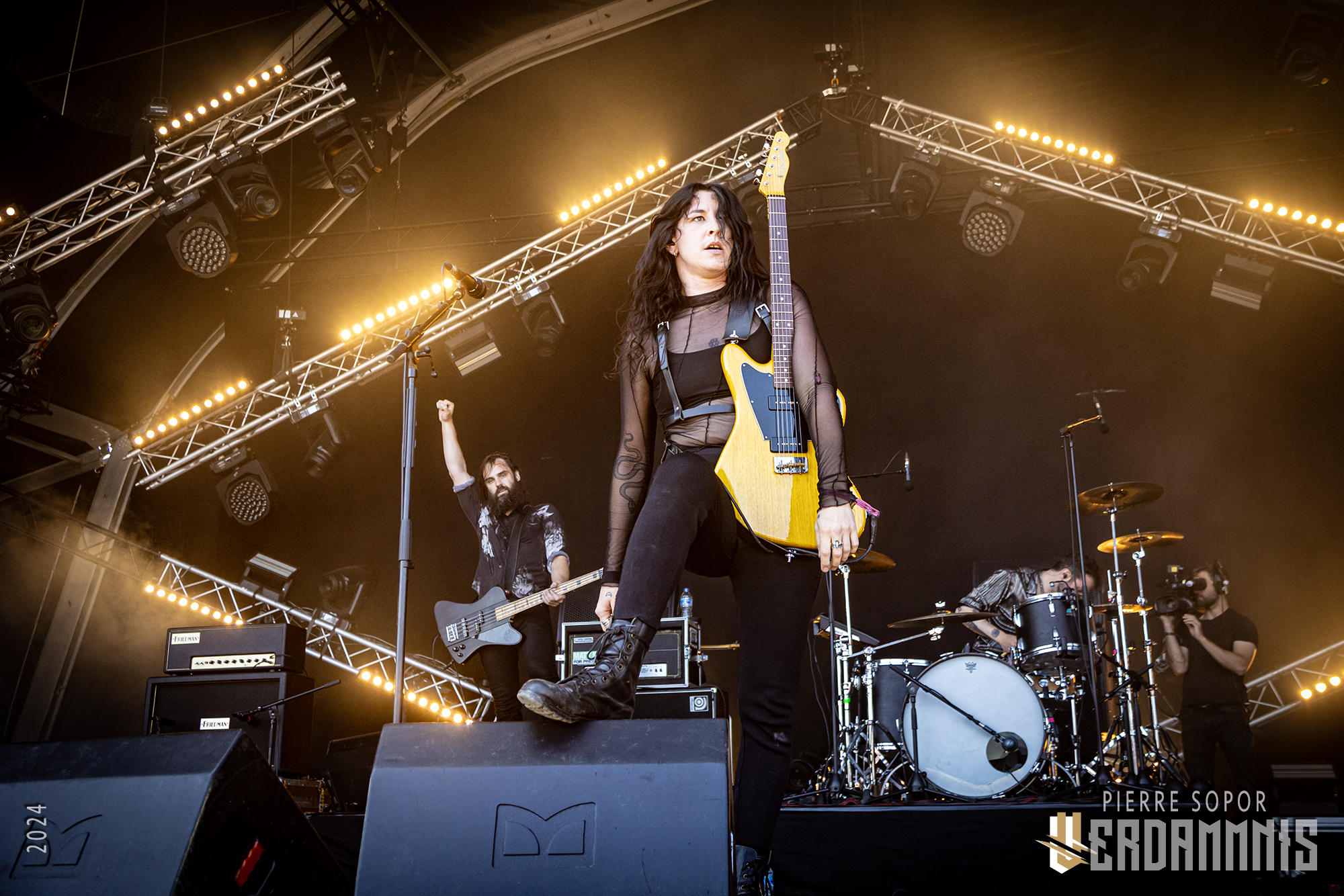
You talk about fluidity, being able to adapt... But death is maybe the biggest change of all! Your first album was called Here Now, There Then, so change was already part of it. What is change to you ? Is it something that is forced? Is it a skill you have to master?
I think if you're not able to change, in the end, you're not gonna have a very good life. You have to be able to adapt. I had to be able to adapt in my life a lot... I think if you're someone that is not really accepted by your own environment, by your own 'milieu', you know, then you have to find ways to make yourself shine, to make yourself worthwhile and make life worthwhile. It's what The Shape of Fluidity is really about.
The Shape of Fluidity was much more the result of a teamwork than the previous albums. Is it why it sounds more complex, with more progressive and post-rock influences?
Definitely. I'm not a very good guitarist but I know how to write a song and I love writing songs, but they're quite simple. I think anyone can play the songs on Here Now, There Then and Summerland. With The Shape of Fluidity, our lead guitarist Nick wrote a lot of the riffs and he's a guitar god. So they became a bit more complex. Omar is more into interesting chord progressions. House of a Thousand Dreams came mainly from his fingers. It's a lot of different influences and it's a bit more technical. But I think it's still very DOOL. We took a direction that we're all very happy with and I think we're gonna maintain this direction a little bit and see where it leads.
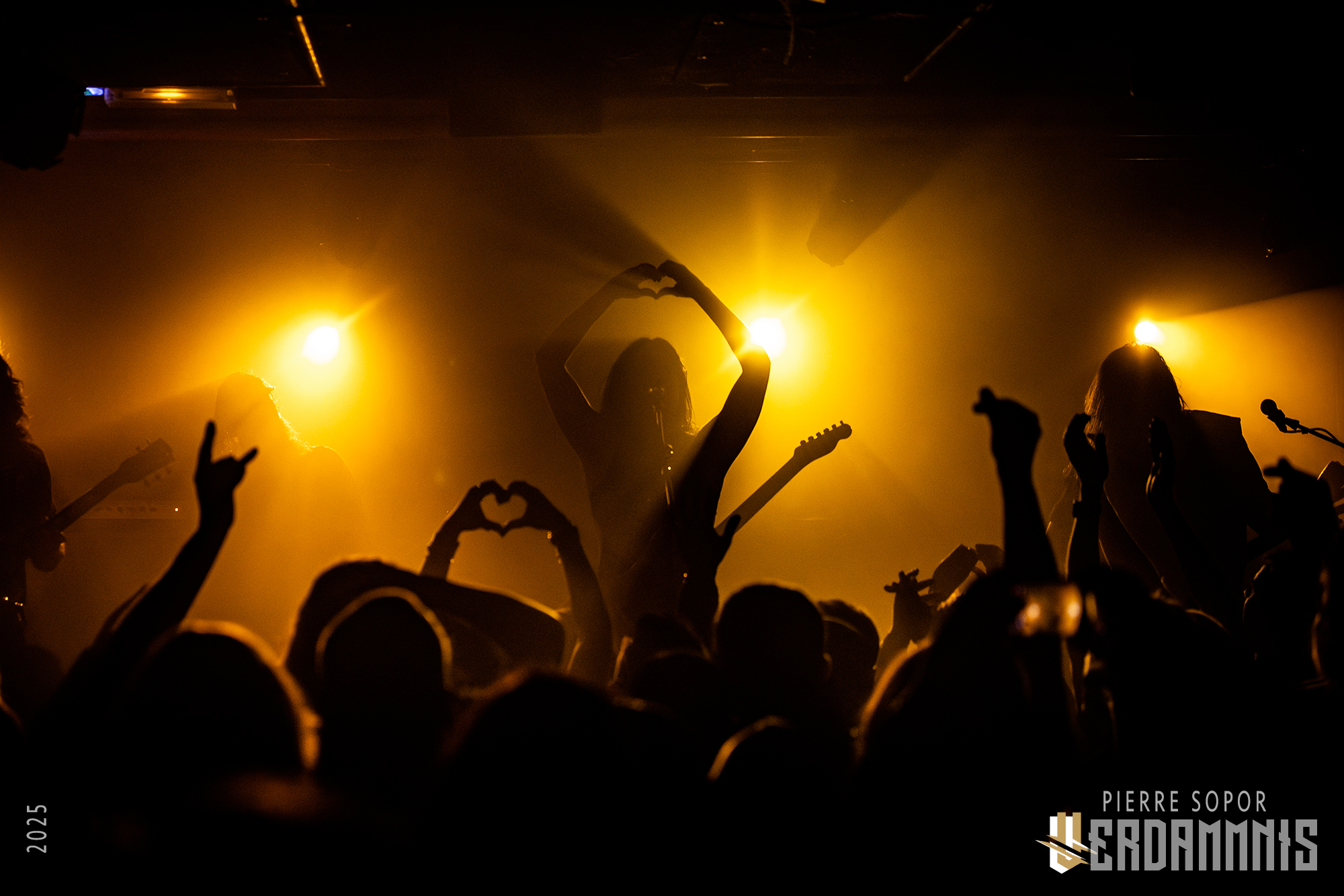
Is it easy for you to come with such personal topics now that the others are also writing the music? Isn't it more difficult to talk about yourself when the music is made by someone else?
It's a good question but you know, in a way it gave me more space to think. They came with a riff, we wrote a song together and it hit me in a different nerve. I started thinking about the music in a different way and I could let go of more technical stuff. We also had the whole covid periode where I went through some self-developpement I guess, because we had nothing to do... I think everybody was in the same situation, you really had to deal with your issues because you were trapped at home! You had nowhere to go, you couldn't go to a bar and get drunk, you couldn't go out or whatever you want to do to divert yourself from what's actually happening! You know, what we do to flee the current underneath... So I had to deal with a lot of issues. Because I did that and also because they were writing a lot of music, I was able to let go of thinking too much about the lyrics and let it all out. It had to be released, I guess.
At any point, were you concerned that by being more technical, you'd lose some simplicity and the emotions wouldn't be as powerful
Paradoxically, because we wrote it more as a group, I think this album is also the most personal. So I'm not afraid at all that the technical stuff would overwrite the emotions. Definitely not.
How does it feel now that you've let all these things out? Was it therapeutic? Do you feel better?
At first, I was really afraid when we were playing the songs live. I used to cry a lot on stage during the first few shows. I was like 'what the fuck? I'm really opening myself' and I felt very vulnerable. Songs like Hermagorgon and The Shape of Fluidity, which are maybe the most personal on the album,really brought me to tears the first couple of times we played them live. It was very intense and I was not prepared for that. It feels good because it got the sting out, you know. It released the pain. I hate to use this word but it was kind of cathartic in a way and I feel like I'm much more in control of my past, my issues and my emotions. Nothing can hurt me anymore with that, because I released it and gave it to the people, I talked about it, I said it out loud... You don't have to be a victim but you can turn your issues into something else. It's an act of adaptation, metamorphosis, you put it into something nice like a song and then it's out of your system, you can almost touch it. Some people get kids, we get albums!
You've done a lot of things, like TV shows. We saw pictures of you, you're very smiling on TV, which is very different from your darker side with DOOL. Is it schizophrenic for you to alternate between the two worlds?
No... because I'm good at both! I think I'm just able to adapt to the kind of people I'm with and put on a laugh. I smile, I use my humour as a weapon to deal with the bullshit you get confronted with on the street in daily life... That's what I do there. But with DOOL, I'm more in touch with my emotions, my darker side and stuff that you can't be showing in broad day light all the time. DOOL started out to give more space to some mystical parts of myself, things that were not daily business. The first two albums were more about philosophical and mystical themes. It just took some time to make a more personal album. But I think you can be mystical as well as polite, you know!
You're about to celebrate your ten years as a band. What are the most important things you learnt as a musician during those ten years?
Personally, it's the fact that I don't have to do everything by myself. I used to be very much of a control freak in the beginning of the band. I was involved with every fucking aspect: the merch, the artwork, writing, mixing, producing... It got me into trouble because I didn't have time for everything! But I was so passionate about everything.. I still am, but I was so passionate in a way that I wanted to control it. I've learnt to trust in the people around me, as we did when writing The Shape of Fluidity. I gave others some space to breathe and do their things. Sometimes, I can even lean on them and I think it's a very wonderful thing, but it took me a while to fully give into that.
It's interesting because it's often what musicians say : it gives the feeling that in the end, what matters the most is your progress as human beings more than as musicians!
That's exactly what music is. It's a tool, basically, to discover yourself and to discover ourselves as a band because there's always something happening on stage. If you go on stage night after night and you feel the same energy, you build a connection. Everybody starts to understand more and more what is the entity that is DOOL, everybody is a part of it, a limb. First it was mostly me but I grew a lot of arms and legs and now we are a five headed monster!
We love Hangman's Chair here. How did you come to work together on a song and a tour?
Their drummer Mehdi called me and asked if I wanted to do a collaboration with them on their new album. We've been talking for a very long time because we're such fans of each others' band! When they come to play in the Netherlands, we come see them and when we play in France, they come see us. They were at Petit Bain the last time... We've been fans of each others' bands for a very long time and we were often talking about making music together or going on tour together. It took so long to get the timing right. We had a tour last year, they called and said 'Ok, we are releasing a new album, do you want to sing on that? We could play it together on tour!' and I was like "fuck yeah"! They wrote a song and I could sing my part on it and it was pretty fucking good.
You said they came to see you when you played at Petit Bain. I remember that night, when you introduced your cover of Love Like Blood and said "this next song is for the boomers". At this very moment, Clement from Hangman's Chairs, took his phone and started filming!
Hahaha, don't write that down, don't write that down!
We won't. But you played this song from the 80's... are you becoming a boomer yourself?
Am I becoming a boomer?! What the fuck is this question?! This interview is over! No, of course I'm not a fucking boomer!
So you covered Killing Joke, you also like the Sisters of Mercy... Here, we love gothic music. Do you listen to music when you're all together in the van?
Yes, but never guitar music! We listen mainly to hip-hop and electronic music together. Yeah. I hope it doesn't break your bubble! If you hear guitars all day, you need to listen to something else.
In the end, do you like touring? Many artists say they love playing music but touring can be so hard...
It's the thing I love doing the most in life. Touring with these guys, with the group, is amazing. Yes, it is hard, yes the pay is shit, yes it's mentally challenging... But in the end, it pays off when you're on a stage and people are singing your songs and you have a good night together. It just feels good. I wouldn't trade it with anything.
